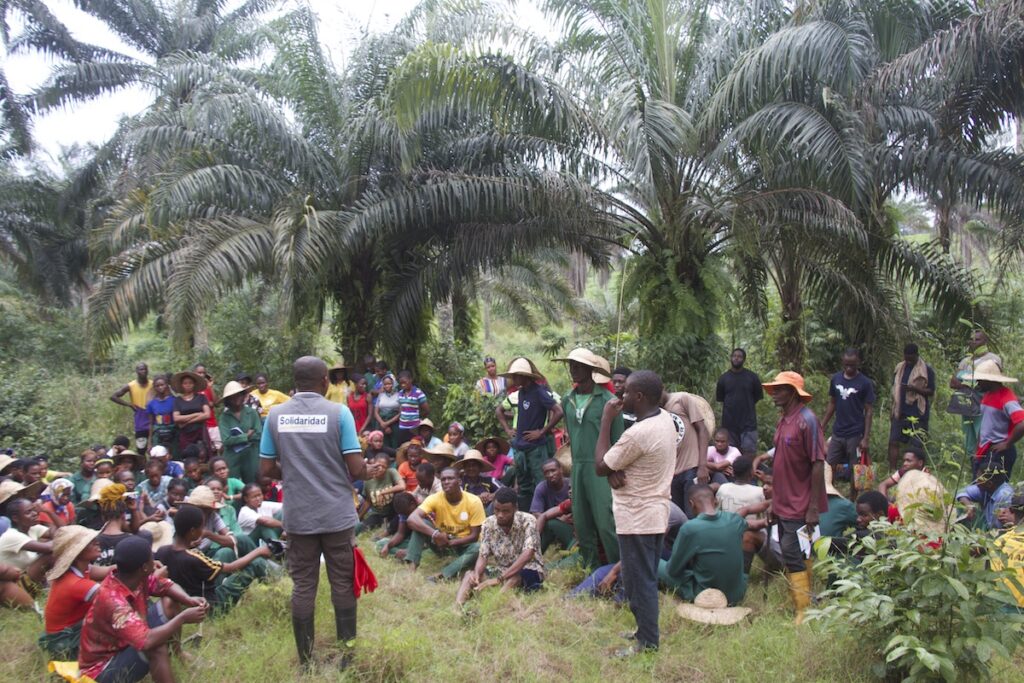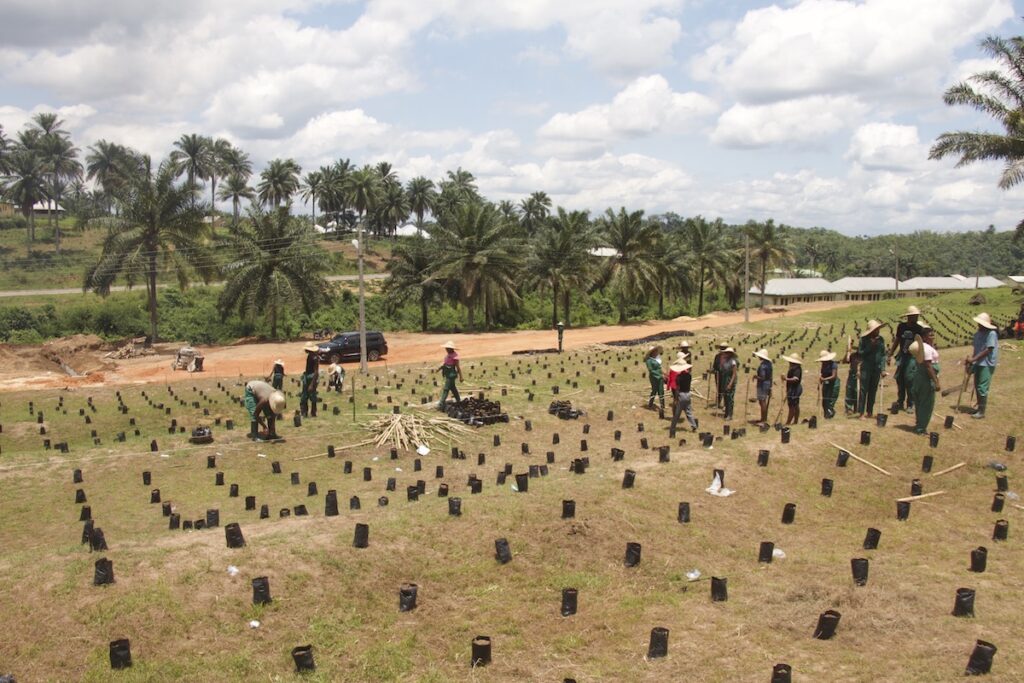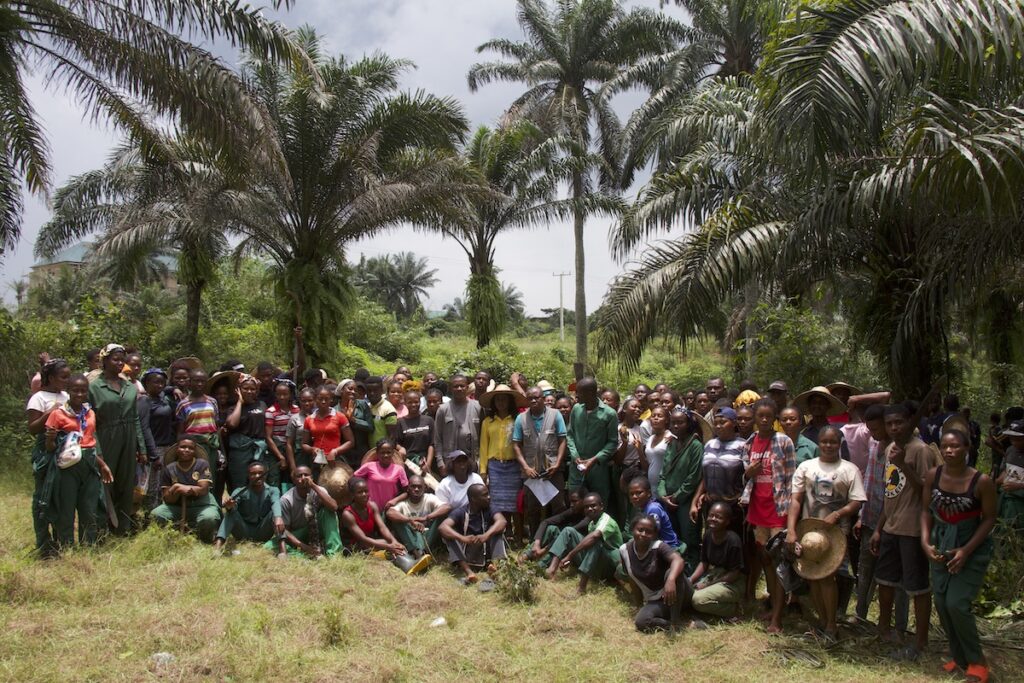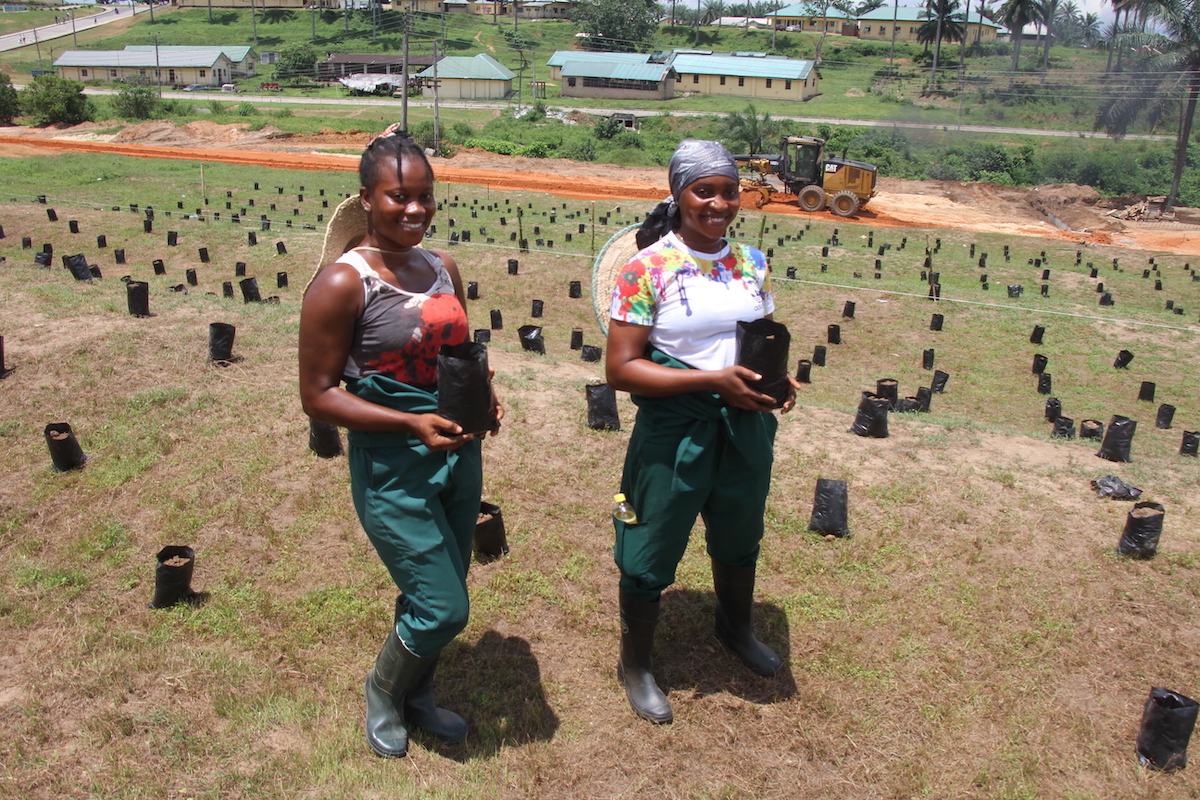Young women from Akwa Ibom State University participate in the Solidaridad entrepreneurial training.
Smallholder farmers in Nigeria account for 90 percent of the country’s agricultural production, and the agricultural sector is the largest employer in the country, employing more than 36 percent of the labor force. Agriculture plays a crucial role in the country’s development plans. It’s expected that most students who participate in the Solidaridad oil palm training programme will take up agriculture as a business, become self-reliant, and then work to support aging oil palm farmers within the students’ communities.
Dr. Edna Akpan, Acting Dean of the Faculty of Agriculture at Akwa Ibom State University, indicates the partnership was motivated by Solidaridad’s recognized expertise in agriculture and its commitment to enhancing production practices and improving the income of smallholder oil palm farmers, including women and youth, in communities across the state.
The partnership will enable the university to support the state’s agricultural agenda through research and human resource development. This will help to reinstate the state to its former glory as one of the leading producers of oil palm in Nigeria.
Dr. Edna Akpan, Acting Dean of the Faculty of Agriculture at Akwa Ibom State University
Raising Student Agripreneurs at a Hub for Sustainable Agriculture
Solidaridad has created a training programme to support 160 students who want to learn about best agricultural management practices, horticulture, and entrepreneurship. The partners have also established oil palm nurseries at the school for students to gain hands-on, practical knowledge, while also generating a modest income for the school.

Located in Akwa Ibom, one of the four states benefiting from the programme, the university has the potential to significantly contribute to sustainable oil palm production in Nigeria. Historically, the state played a pivotal role as a major oil palm producer before Nigeria’s decline from its position as a leading global producer.
Dr. Akpan believes that collaborations with groups like Solidaridad will play a crucial role in promoting sustainability, food security, and economic growth in the country.
Kene Onukwube, Programme Manager for Oil Palm at Solidaridad in Nigeria, says that with Solidaridad’s years of expertise working with supply chains, and as a developer of youth-focused initiatives, the group hopes that the Akwa Ibom State University will become a center of excellence for innovative and sustainable agriculture in Nigeria.
With an aging population of smallholder oil palm farmers in the country, Onukwube believes that there is an urgent need to bolster the capacity of youth interested in agriculture, which will ensure the success of the next generation of oil palm growers and entrepreneurs. He goes on to say that, “Equipping students with entrepreneurial skills is crucial for fostering innovation and encouraging graduates to become entrepreneurs in the agricultural sector, leading to job creation and economic development.”

The National Initiatives for Sustainable and Climate-Smart Oil Palm Smallholders Programme (NISCOPS)
The Solidaridad and Akwa Ibom State University partnership is one of many innovative projects emerging from the National Initiatives for Sustainable and Climate-Smart Oil Palm Smallholders Programme (NISCOPS). NISCOPS in Nigeria and Ghana is funded by the Dutch Ministry of Foreign Affairs and Henkel, a global consumer and industrial business. The programme promotes climate-smart oil palm production and milling practices. In Nigeria, 12,000 smallholder oil palm farmers will benefit from NISCOPS in the states of Akwa Ibom, Cross River, Enugu and Kogi.

Under Solidaridad’s capacity-building programme on entrepreneurship an additional 240 youth farmers at the school have learned about alternative livelihood options to prepare them for a future in agriculture. That is just the start for a sustainable and fruitful partnership with Akwa Ibom State University, which looks to bring innovative change and practical training to youthful farmers wanting to create a life in oil palm agriculture.

